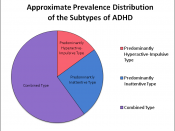One of the problems with strict behavioral theory is that it very much ignores
the 'human variable'. When we reduce things strictly to stimulus and
response, we can easily forget that there are human feelings, thoughts, and
cognitions that are involved in the expression of a behavior as well. In the
case of Roger a behaviorist will take everything at face value. If Roger comes
in and says he is having trouble studying, it is very likely that the behaviorist
will agree with him based on the observable evidence and come up with a
reinforcement contingency of some sort to correct his 'problem'. However,
the behaviorist is not likely to explore Roger's motivations, interests, or his
desires in life. The true cause of the behavioral problem may have to do with
thoughts, feelings, or a person's concept of themselves. Behaviorism is ill
suited to dealing with these highly abstract concepts.
This means that while
the behaviorist may address the problem and possibly even find a way to get
Roger studying and into business school, he most likely will not be able to
address the issue of whether or not Roger should be in business at all; or if
indeed he should pursue his music interests. Likewise, behaviorism will be of
little help in assisting Roger in his problems with his family, which a
psychoanalytically oriented or cognitive therapist would most likely feel are
very relevant in his situation. For example, there is a possibility that Roger
could be much happier as a musician than as a business professional, and that
deep down Roger knows this and that is why he is having difficulty studying.
The conflict he is experiencing could be coming from the pressure of his
parents who tell him (directly or indirectly) that he should be in the...


![[Roger Bresnahan, St. Louis, NL (baseball)] (LOC)](https://s.writework.com/uploads/7/79036/roger-bresnahan-st-louis-nl-baseball-loc-thumb.jpg)